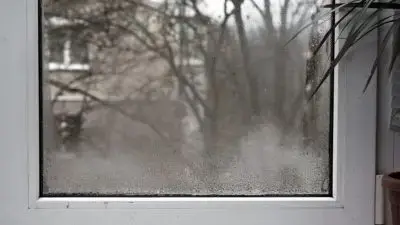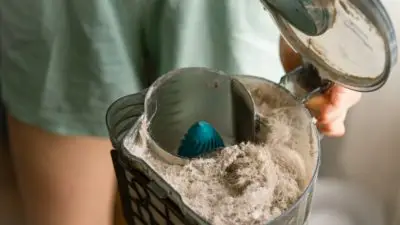Whether you want to reduce your carbon footprint, save money on heating and cooling costs, or just feel comfortable at home, insulating your home can help you do all of those things and more. HomeWorks Energy is a Mass Save® partner, which means that you can get 75-100% off insulation services, which helps you improve energy efficiency at home in an affordable way! You don’t need to be an insulation expert to get the benefits of energy-efficient insulation upgrades, but it’s helpful to know some basic facts and stats! Here are 7 facts about insulating your home that you may not know!
Insulation updates are for all types of homes
Insulation can be added to pretty much all types of homes! Small, large, old, new… there are homes in all directions that are fit for an upgrade. Did you know that 9 out of 10 homes in the U.S. are under-insulated? Newer and older homes can benefit from improvements in insulation, and because every home is different, a no-cost virtual Home Energy Assessment is really helpful to determine how the unique issues in your home can be best addressed. With a home energy audit, you get a customized opinion about your specific home which is invaluable when it comes to figuring out how to reduce your carbon footprint. The U.S. Department of Energy (DOE) recommends finding a team of home energy experts to perform a home energy audit so that you can learn how to save money on energy.
Insulation is measured by R-value
You might be wondering how the effectiveness of insulation is measured! Briefly put, all types of insulation materials are rated by R-values. The higher the R-value, the more effective at insulating your home it will be. A lot of factors go into determining R-value such as the type of insulation, its thickness, and its density. Factors such as temperature, aging, and moisture accumulation can also affect a material’s R-value, or ability to insulate your home. The recommended amount of insulation or R-value you’ll need depends on where you live (think Colorado vs. Florida), the type of heating and cooling system you have, and the area of the house that you’re insulating. The important thing to remember here is that there are recommended standards and it’s essential to know if your home is meeting those recommendations or is falling below what’s necessary to keep you comfortable.
Home air sealing goes with insulation
According to the U.S. DOE, “before you insulate, you should make sure that your home is properly air sealed.” Insulating your home is like your home wearing a winter sweater and air sealing would be if your home were wearing a windbreaker. Without air sealing, your home is not protected from the movement of the outside air, and without insulation, heat moves in and out of your home. Now, imagine your home wearing a windbreaker over a winter sweater. That’s what it’s like when insulation and air sealing work together and that’s when you can experience a true difference in indoor temperature and energy use. Did you know that the Mass Save® program offers 100% off air sealing and 75-100% off insulation? You can access these generous Mass Save® rebates by signing up for a no-cost virtual Home Energy Assessment here.
There are different types of insulation
While you might be familiar with images of insulation being blown into an attic or sheets of insulation being put down, there are many types of insulation to fit every home’s needs. There are probably a lot more options than you even realize! At HomeWorks Energy, we work with a customized combination of materials in our customers’ homes to ensure that every attic, wall, ceiling, crawl space, hard to reach spot, and small area are insulated from the outdoors. Blown-in cellulose, fiberglass batting, spray foam, and polyiso (aka rigid foam board) are some of the best insulation materials that we work with depending on what you have going on at your home. No one can accurately tell you what your uniquely shaped attic might need until they see it, but once you get a Home Energy Assessment done, it becomes much clearer what options you have on the table to make your home more comfortable.
Mass Save® insulation discounts are available
Thinking about insulating and air sealing your entire home might seem like a big investment, but there are programs that exist in Massachusetts to help lessen the impact on your wallet. In contrast to common myths, energy-efficiency is affordable and achievable! Incentives from the Mass Save® program include 100% off air sealing and 75-100% off the costs that go into insulating your home. The best part (yes it gets better!) is that it will eventually pay for itself and the small cost that you had to pay will be repaid to you in full when you start saving money on energy use. The Mass Save® program also offers no-cost items during your Home Energy Assessment like energy-saving LED light bulbs, smart power strips, programmable thermostats, and energy-saving showerheads at no-cost to you!
The insulation installation is important
What if we told you that the installation is just (or even more) important than the actual materials? Iain Walker, a scientist at the Lawrence Berkeley National Lab’s Residential Building Systems Group, says that when it comes to residential insulation, “the installation is usually more important than the material that is used… insulation can be installed well or badly.” The key takeaway here is if you’re looking for a company that does attic insulation installation or if you’re wondering how to install insulation on your own, you want to make sure that your home is in the most qualified hands. The good news is that there are resources available to make it affordable and achievable like the Mass Save® program. During a no-cost virtual Home Energy Assessment, a certified home energy expert will tell you how your home is losing energy and will make insulation and air sealing recommendations for you. The cherry on top is that the actual work of air sealing is at no-cost to you and you can get the insulation done at 75-100% off the total price, so you don’t have to worry about learning how to do it yourself. If you’re interested in the generous Mass Save® incentives, click here to save your spot.
Insulation is for warm weather, too
Homeowners often start thinking about insulation when winter hits and the wind picks up, but insulation is made to protect your home and your family year-round. Insulation is a thermal barrier that resists heat transfer which means that yes, it keeps heat inside in the winter, but it keeps it outside in the summer! It’s all about keeping the heat where you want it! With updated energy-efficient insulation, you will experience comfort and energy savings in every season of the year, not just winter. Check out this case study of a Westhampton home that shows how the customers will save almost $500 dollars annually on energy use! Plus, they got more than $2,000 worth of energy-efficient upgrades at no-cost with the Mass Save® program!
Insulating your home is a doable project that doesn’t have to break the bank! HomeWorks Energy is a proud Mass Save® partner and is dedicated to helping Massachusetts residents reduce energy and save money. Call 781-305-3319 or click here to schedule a no-cost virtual Home Energy Assessment and get access to all of the generous Mass Save® rebates and start making your home better protected with insulation and air sealing.








